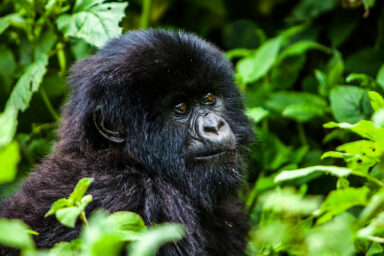Rights Groups Urge Social Media Companies to Fight Election Disinformation
PICKS are stories from many sources, selected by our editors or recommended by our readers because they are important, surprising, troubling, enlightening, inspiring, or amusing. They appear on our site and in our daily newsletter. Please send suggested articles, videos, podcasts, etc. to picks@whowhatwhy.org.
Rights Groups Urge Social Media Companies to Fight Election Disinformation (Maria)
The author writes, “Social media companies, including Facebook, Twitter, YouTube, and TikTok, must act now to blunt the effect of false information — including Donald Trump’s ‘Big Lie’ that his 2020 defeat was the result of fraud — in this year’s US midterm congressional elections, rights groups said on Thursday. Social media platforms backed away from policies designed to fight election disinformation after the 2020 presidential race won by Democratic President Joe Biden, more than 100 advocacy groups, led by Common Cause, said in a letter to social media executives.”
Republican Senator Compares Women to Sea Turtles and Eagles in Antiabortion Speech (Reader Steve)
The author writes, “Republican Senator Steve Daines of Montana compared human fetuses to sea turtles and eagles in a speech where he railed against efforts to protect abortion rights on the Senate floor Tuesday. The short clip of Daines outlining the criminal penalties for those who take or harm the eggs of the animals to advance his antiabortion stance quickly went viral online, generating both backlash and bafflement. ‘Why do we have laws in place that protect the eggs of a sea turtle or the eggs of eagles? Because when you destroy an egg, you’re killing a pre-born baby sea turtle or a pre-born baby eagle,’ Daines said. ‘Yet when it comes to a pre-born human baby, rather than a sea turtle, that baby will be stripped of all protections in all 50 states under the Democrats’ bill we’ll be voting.’”
Youngkin’s ‘Almighty Creator’ Rhetoric in New Diversity Training Offends Some State Employees (Reader Steve)
From the Virginia Mercury: “A new diversity training [Virginia] Gov. Glenn Youngkin’s administration enacted includes two references to a ‘creator,’ religious language that struck several workers who saw it as inappropriate for inclusion in training material that’s mandatory for new state government employees. The Youngkin administration created the ‘Working Together for Virginia’ video as its own attempt to comply with a 2020 law requiring the state’s human resources agency to provide an online diversity and cultural competency training course for state employees. The ‘creator’ lines appear to be drawn from a portion of Youngkin’s inaugural speech that was repeated in a later executive order that reshaped the Office of Diversity, Equity and Inclusion in the governor’s cabinet.”
Cognitive Impact of Severe COVID Is Equivalent to 20 Years of Aging, Study Finds (Mili)
The author writes, “We all know that COVID-19 can lead to lingering fatigue and brain fog. But one of the most rigorous examinations to date of the long-term cognitive impacts of severe infection has just yielded some pretty unsettling results. In a study comparing 46 severe COVID-19 patients with 460 matched controls, researchers found the mental impacts of severe COVID-19 six months later can be the equivalent to aging 20 years — going from 50 to 70 years old — or losing 10 IQ points. The specific mental changes were also distinct to those seen in early dementia or general aging.”
Trash or Recycling? Why Plastic Keeps Us Guessing. (Laura)
From The New York Times: “The universal symbol for recycling, known as the ‘chasing arrows’ logo, is stamped on so many things. But that doesn’t mean they’re recyclable. Manufacturers can print the logo on just about any product. That’s because its main purpose isn’t to say whether it’s recyclable, but to identify the type of plastic it’s made from. (For example, if there’s a ‘3’ in the center, it’s PVC, which most curbside recycling programs don’t accept.) The logo is so widely misunderstood that last year California banned its use on things that aren’t recyclable. There are efforts to improve the system. But first, the central question: Why is this so hard?”
Why ‘De-Extinction’ Is Impossible (But Could Work Anyway) (Sean)
From Quanta Magazine: “For scientists studying de-extinction — the ambitious effort to resurrect extinct species — a paper that appeared in Current Biology in March was a sobering reality check. Thomas Gilbert, a genomics researcher and professor at the University of Copenhagen, led a team of researchers who tested the feasibility of de-extinction by sequencing the genome of the Christmas Island rat, a species that went extinct in the late 19th or early 20th century. ‘Look, this is like the best-case scenario,’ Gilbert said. The samples of DNA from the extinct species were relatively new and well preserved, and the extinct rat was very closely related to the standard brown Norway rat, for which there is abundant DNA reference data. This was a far cry from trying to figure out the DNA of some jungle cat from the Pleistocene, let alone a dinosaur. Reconstructing the extinct rat’s genome should have been relatively simple. Yet despite their best efforts, the scientists were unable to recover nearly 5% of the Christmas Island rat’s genome.”
Patron the Bomb-Sniffing Dog Cements His Hero Status With a Presidential Medal (Dana)
The author writes, “A tiny Jack Russell terrier has won hearts and admirers for helping neutralize hundreds of Russian explosives in Ukraine. Now he’s won state honors, too. Patron the bomb-sniffing dog — and his owner, Mykhailo Iliev of the Civil Protection Service — received a medal from Ukrainian President Volodymyr Zelenskyy during a news conference on Sunday, in recognition of their service to the country. Patron, whose name means ‘ammo’ in Ukrainian, is credited with detecting more than 200 undetonated explosive devices since the beginning of the war in late February, according to Reuters.”



